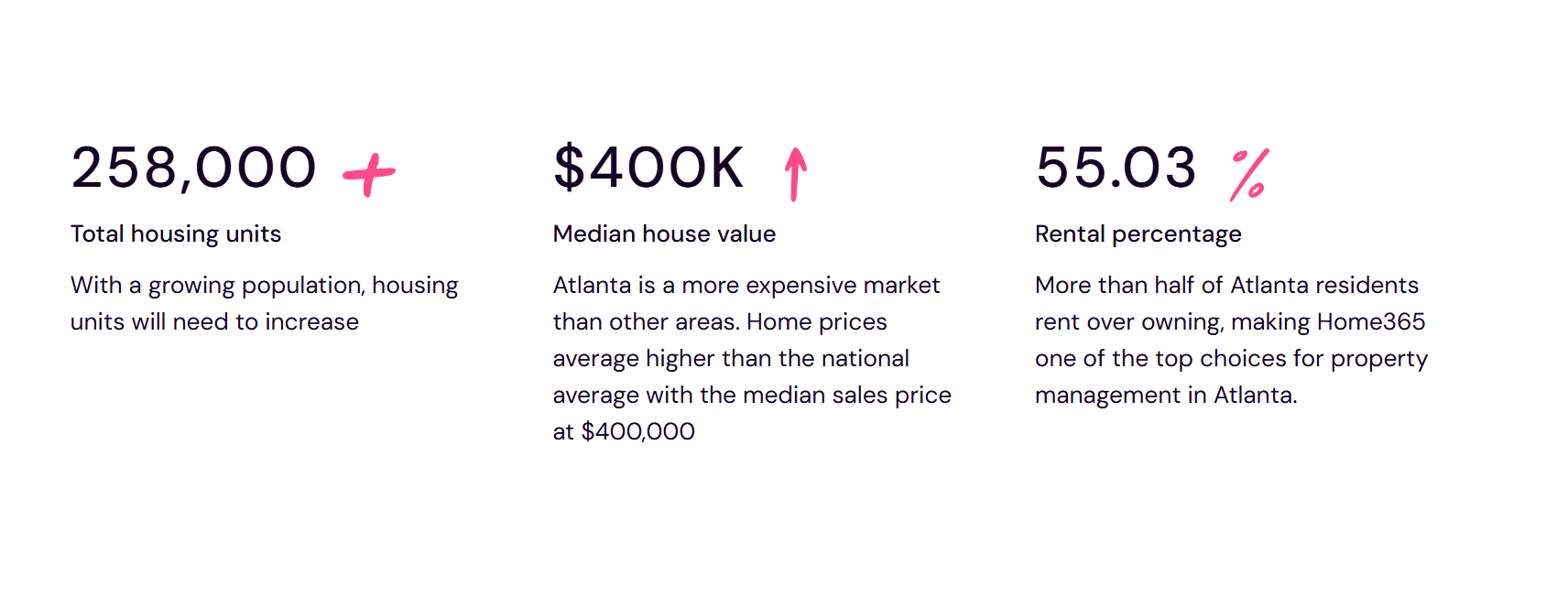
Being a landlord in Atlanta presents unique opportunities and challenges, given the city’s dynamic rental market and distinct legal landscape. For both new and seasoned landlords, it’s crucial to stay informed and proactive to ensure a smooth experience. Here’s a comprehensive guide to help you effectively manage your rental property in Atlanta and optimize your investment.
1. Understand the Local Market and Set Competitive Rent
The first step to a successful rental property is understanding the local Atlanta rental market. Atlanta’s neighborhoods vary widely, with some areas seeing high demand and premium rents due to proximity to major employers or cultural attractions. Conducting a rental market analysis, or hiring a professional to do so, can help you understand current trends and set a competitive, profitable rate. Overpricing can lead to vacancies, while underpricing may result in lost revenue. Platforms like Zillow or HotPads provide insight into rental comps to help you make data-driven decisions.
2. Ensure Your Property is Rent-Ready
Tenants expect a clean, safe, and attractive space. Before marketing your property, ensure it’s move-in ready. This includes painting, repairing any damage, and ensuring all systems (plumbing, HVAC, electrical) are in good working order. First impressions matter, and properties in excellent condition often attract more responsible tenants who are likely to maintain the property. Consider staging your rental unit and taking high-quality photos, as well-presented homes draw more interest and can even justify higher rent.
3. Draft a Strong, Georgia-Specific Lease Agreement
A well-crafted lease agreement protects both you and your tenants. Generic lease forms can lead to potential legal challenges, so use a Georgia-specific lease that complies with local and state laws. The Georgia Association of Realtors (GAR) lease, for example, is tailored for compliance with state regulations. Be explicit about lease terms, such as rent due dates, late fees, maintenance responsibilities, pet policies, and conditions for termination.
4. Screen Tenants Thoroughly
A robust tenant screening process is essential to avoid future issues. Background checks, credit history, employment verification, and references from past landlords are all valuable tools in assessing potential tenants. In Georgia, landlords must comply with Fair Housing laws, so make sure your criteria are standardized and applied consistently across applicants. Red flags include past evictions, unpaid rent, or substantial credit issues. Taking the time to find reliable tenants can save you from the headaches and costs associated with evictions or property damage.
5. Stay Informed on Atlanta Tenant Laws
Georgia’s landlord-tenant laws offer specific protections and responsibilities. Key points include:
- Security deposits: Georgia doesn’t set a maximum limit on security deposits, but you must return the deposit within 30 days of the tenant’s move-out date, minus any documented deductions.
- Notice requirements: For lease terminations, Georgia law requires a 60-day notice from the landlord and a 30-day notice from the tenant.
- Habitability: Landlords are legally responsible for maintaining habitable conditions, which include functional plumbing, heating, and electrical systems.
Being well-versed in these requirements not only ensures compliance but also builds trust with your tenants, reducing the risk of disputes.
Read more: Demystifying Atlanta Tenant Laws with Home365’s Property Management Atlanta Experts
6. Prioritize Preventive Maintenance and Quick Repairs
Regular maintenance and prompt responses to repair requests are critical for keeping your property in good shape and your tenants satisfied. Schedule periodic inspections and address any small issues before they turn into expensive repairs. For instance, HVAC systems in Atlanta’s hot climate should be serviced annually to prevent breakdowns during the summer.
To streamline maintenance, consider partnering with local contractors or a property management company like Home365, which offers comprehensive maintenance and repair services as part of their property management package.

7. Establish Clear Policies for Rent Collection and Late Fees
Set clear expectations for rent payments from the start. Outline accepted payment methods, such as bank transfers or online payment portals, and specify due dates and late fees in your lease. Georgia law allows late fees but limits the amount, so ensure you remain within the legal limits. Implementing an easy, online rent payment system can improve convenience for tenants and increase the likelihood of on-time payments.
8. Prepare for Potential Evictions Properly
Evictions are often a last resort but may be necessary when tenants fail to uphold their lease terms. In Georgia, you must provide a written notice and allow a period for the tenant to address the issue or vacate. If they don’t comply, you can file for eviction with the local magistrate court. Be aware that the process requires careful adherence to legal protocols, so it’s wise to consult with a legal professional or property management company experienced in Georgia evictions.

9. Leverage the Right Marketing Channels
Marketing your rental property effectively is crucial for minimizing vacancy periods. High-quality photos and a detailed description of the property’s amenities and nearby attractions can boost interest. In Atlanta, where many renters are young professionals, online platforms such as Zillow, Apartments.com, and Trulia are effective for reaching potential tenants. Additionally, consider listing on social media or partnering with local real estate agents.
10. Consider Professional Property Management
While managing rental property can be rewarding, it’s also time-intensive. A property management company can handle tenant screening, maintenance, rent collection, and even legal compliance. For Atlanta landlords, professional management can help navigate tenant laws, reduce vacancy times, and ultimately protect your investment. Home365, for example, offers transparent pricing, expert screening, and maintenance support to provide peace of mind for landlords.
11. Stay Updated on Atlanta’s Real Estate Trends
The Atlanta rental market is constantly evolving, with factors like population growth, development projects, and economic shifts influencing demand and rental rates. Stay informed on these trends to optimize your investment strategy. For example, certain areas like Midtown and Buckhead have seen increased demand due to proximity to tech hubs and entertainment districts, while neighborhoods like Kirkwood are becoming more popular among families.
Networking with other landlords or joining local associations can provide valuable insights and resources for managing your Atlanta rental property.
12. Keep Detailed Records of All Transactions and Communications
Maintaining accurate records of lease agreements, rent payments, maintenance expenses, and communications with tenants can safeguard you in case of disputes. Georgia law requires that landlords document specific aspects of their interactions with tenants, especially regarding security deposits and repairs. Investing in property management software can simplify record-keeping and allow you to access documentation when needed.
Managing a rental property in Atlanta is easier with the right support. Home365 offers expert solutions for tenant screening, maintenance, and compliance. Ready to maximize your rental income with less hassle? Visit here to see how we can help.



